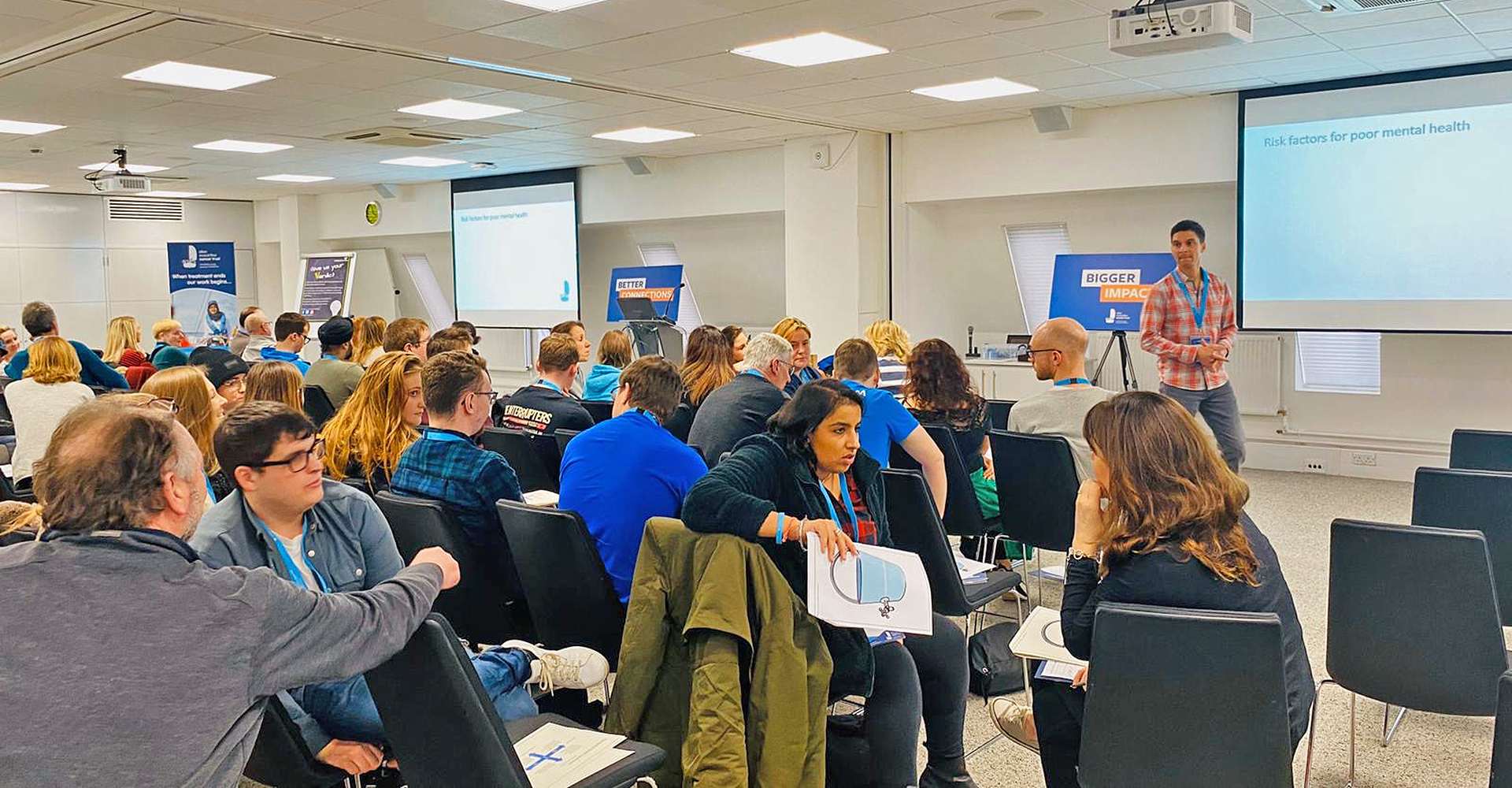09 April 2020
What is mental health, what influences it and how can we be mindful of the mental health of others, particularly when supporting young people in recovery from cancer? In March, Mental Health First Aid Instructor, Gavin Sterry, led two fantastic workshops on this at our Volunteer Training and Update Day in Birmingham. Here are our six top takeaways...
![]()
These sessions were safe spaces that gave everyone a chance to discuss mental health, and an invaluable opportunity to talk about something that can be difficult to open up about.
Amidst wider discussions around mental health, the volunteers were encouraged to reflect on and share their own experiences of talking to young people on Trust trips; when and how they approached them, why this approach was effective, what did they find useful to say and why, and what did they avoid saying and why. This is what we learned…
Mental health is difficult to define
No two people in the room defined mental health in the same way. Some chose to focus on the symptoms of poor mental health: low mood, lethargy, changes in behaviour. Others talked about chemical imbalances in the brain.
Only after a while did anyone mention what positive mental health looks like, since, it was suggested, we notice it more when it is in need rather than when we are contented. Mental health is a spectrum rather than a choice between just ‘good’ or ‘bad’.
Everything can affect it
Everything from day to day behaviour, to personal achievements, to social pressure, to health concerns can affect your mental health. Realising there are so many factors contributing to how you feel also helps you realise just how important it is to pay attention to what is happening in your life and the world around you.
Influences on your mental health can go both ways
Take family for example. Relatives are lifelong companions who provide comfort and understanding. Their unconditional love is invaluable when times are tough. Their presence in your life is a top-up against the things that drain you.
But at the same time, we worry about our families. We feel pressure to do them proud, are concerned about their health, feel anxious on their behalf. Friendships can be healthy or toxic; money can bring comfort or stress; work can make you feel proud or nervous. As with mental health itself, the factors influencing it are also a spectrum.
 Let it out
Let it out
Think of water accumulating in a ‘stress bucket’ as a symbol for worries. A stressful meeting fills it a little, and then an argument with a friend adds a little more. That water weighs heavy on the mind if all it does is gather, without a chance to empty out.
Flushing away those worries is key to positive mental health. That stressful meeting is poured out if it is followed by friendly support, or a post-meeting treat, or meditation, for example. Everyone has their own bucket and it is constantly being filled. It’s important to find ways to keep it closer to a puddle than a tidal wave.
What helps is different for everyone
People found comfort in different places. Everyone said friendships were essential for a positive mental health, for when you want to share the good times and for when you need someone to turn to. But just because someone also found music helped them, doesn’t mean it worked for everyone. For them, it could be their faith, or their volunteering, or their gym routine. There is no one-size-fits-all top-up for mental health, but it is exciting to discover the things that make you glow.
We can make a huge difference to each other
Everyone knows someone who has gone through a hard time. It could be you, right now.
How we talk to others can really make a difference to how they feel, and how we say something is often more important than what we say. If we take the time to be considerate and compassionate, who we are talking to will notice. If we are dismissive and cold, they will notice that too. We will not get it right every time, but by thinking about the impact of our words and actions, we can do our best to keep people feeling safe and respected.